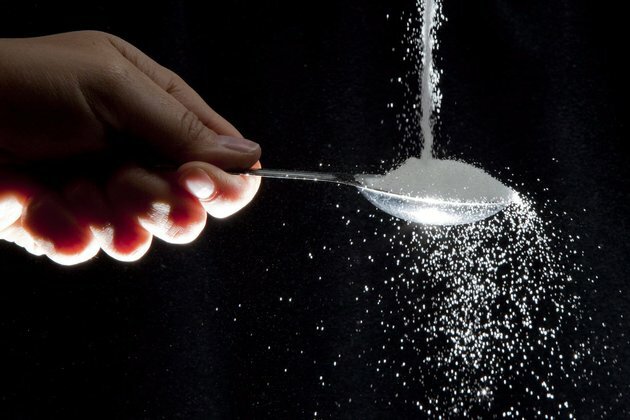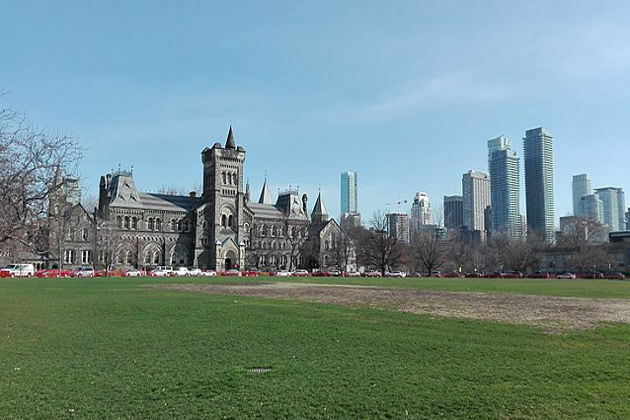Uncovering the violent history of the Canadian sugar industry
The Conversation
17 Mar 2023, 02:08 GMT+10

Sugar, we are often told, is bad for us. According to recent health advice, adults should restrict their sugar intake to between six and nine teaspoons daily. But what is more upsetting about sugar is its atrocious history.
Western Europe's appetite for "sweetness" helped fuel the horrific transatlantic trade of enslaved peoples, in which at least 15 million enslaved people from Africa were forced to work on plantations in the Americas. To this day, working conditions in sugar are among the world's worst.
Given its heinous human rights record, the question becomes: why do we continue to eat sugar? The answer is complicated. Crucial, however, are the significant profits that sugar represents, together with the low prices that sugar commands.
History of sugar
For nearly five centuries, European planters made dizzying fortunes in sugar, made possible by enslaving workers in colonized lands. Sugar became so integral to European profiteering that it started being produced on a global scale. Canadian investors, too, have reaped massive sugar profits.
During the 1700s and 1800s, most Europeans, in what is now Canada, were implicated in the transatlantic sugar and slave trades. Not only did many consume the fruits of the enslaved sugar industry - including molasses and rum, in addition to sugar, as historian Afua Cooper writes - but some also invested in Caribbean trade, itself powered by enslaved sugar work.
Several Canadian banks - including the Imperial Bank of Commerce and the Bank of Nova Scotia (now known as Scotiabank) - have their origins in the West Indies, where their forerunners established themselves early in the 19th century. According to Cooper, the Bank of Nova Scotia exists "in the shadow of West Indian slavery."
Western Canadians have also profited from unfree sugar labour. The famed western Canadian brand, Rogers Sugar, was established by American Benjamin Tingley Rogers who moved to Canada in 1889. Having grown up in the sugar industry, Rogers had both sugar connections and expertise.
Building a refinery in Vancouver, a city newly constructed on the unceded territories of the xʷməθkʷəy̓əm (Musqueam), Sḵwx̱wú7mesh (Squamish) and səlilwətaɬ (Tsleil-Waututh) Nations, Rogers created a western Canadian sugar empire - one that sourced raw sugar cane through the Pacific, refined it in British Columbia and sold it throughout the Canadian West.
Railway magnate William Cornelius Van Horne, together with noted investors such as Richard Bladworth Angus, Edmund Boyd Osler and Donald Alexander Smith, were among the ventures' early shareholders. By the time of his death in 1918, Rogers had become "quite wealthy."
Now owned by Lantic Inc., Rogers Sugar remains a recognized Canadian brand. Less well known, though, is Rogers Sugar's violent past.
Sugar plantations
To make the refined sugar that is so familiar to Canadians today, B.C. Sugar (the name of the company that owned Rogers Sugar) sourced both beet and cane sugars. Canadian beet sugar has its own atrocious labour history, as University of Saskatchewan professor Ron Laliberte, York University professor Mona Oikawa and other experts have demonstrated.
Refined predominantly in Vancouver, Rogers Sugar was made mostly from raw cane sugar. Since sugar cane cannot grow in Canada, B.C. Sugar sourced internationally from places including Mauritius, Java, Peru, Hawaii, Cuba, Fiji and the Dominican Republic.
B.C. Sugar also ventured into sugar cane plantation ownership: in Fiji between 1905 and 1922, and in the Dominican Republic between 1944 and 1955. Notably, it purchased the latter from the Bank of Nova Scotia.
In both cases, workers reported horrendous conditions. The pay was so low and the work was so menial in the Dominican Republic that, as historian Catherine C. Legrand points out, workers left the plantation whenever they could.
In Fiji between 1905 and 1920, B.C. Sugar employed indentured workers from India who migrated to the colony on five-year contracts. As on other Fiji plantations, workers were subject to numerous atrocities and treated in ways similar to how enslaved and indentured people were treated on plantations globally.
Forced into hard physical labour with little time for sleep, indentured workers at B.C. Sugar's Fiji plantation endured sickness, confinement, hunger, abuse, injuries, whippings, beatings and more, all for below subsistence pay and the eventual chance to move out of indentured work.
Conditions were so dire that some workers tragically perished in B.C. Sugar's cane fields. When Fiji de-criminalized the desertion of indenture contracts in 1916, it is little wonder that hundreds of workers left the colony's sugar plantations. These included plantations operated by B.C. Sugar.
Understanding Canadian history
Refined sugar is now so common it is difficult to imagine life without it. But, by reflecting on its origins, we can trace the pathways that have made this commodity so abundant. Canadian sugar was built upon violence, including upon enslaved and indentured labour.
By building upon existing research into Canadian sugar, and by continuing to probe Canadian sugar companies' local and global histories, we can gain a clearer picture of how sugar became central to the Canadian diet.
And we can also work toward greater recognition for those who have laboured in the local and global Canadian sugar industry.
Author: Donica Belisle - Professor of History, University of Regina 
 Share
Share
 Tweet
Tweet
 Share
Share
 Flip
Flip
 Email
Email
Watch latest videos
Subscribe and Follow
Get a daily dose of Haiti Sun news through our daily email, its complimentary and keeps you fully up to date with world and business news as well.
News RELEASES
Publish news of your business, community or sports group, personnel appointments, major event and more by submitting a news release to Haiti Sun.
More InformationInternational
SectionNative leaders, activists oppose detention site on Florida wetlands
EVERGLADES, Florida: Over the weekend, a diverse coalition of environmental activists, Native American leaders, and residents gathered...
Beijing crowds cheer AI-powered robots over real soccer players
BEIJING, China: China's national soccer team may struggle to stir excitement, but its humanoid robots are drawing cheers — and not...
COVID-19 source still unknown, says WHO panel
]LONDON, U.K.: A World Health Organization (WHO) expert group investigating the origins of the COVID-19 pandemic released its final...
Fox faces $787 million lawsuit from Newsom over Trump phone call
DOVER, Delaware: California Governor Gavin Newsom has taken legal aim at Fox News, accusing the network of deliberately distorting...
DeepSeek faces app store ban in Germany over data transfer fears
FRANKFURT, Germany: Germany has become the latest country to challenge Chinese AI firm DeepSeek over its data practices, as pressure...
Canadian option offered to Harvard graduates facing US visa issues
TORONTO, Canada: Harvard University and the University of Toronto have created a backup plan to ensure Harvard graduate students continue...
Business
SectionTech stocks slide, industrials surge on Wall Street
NEW YORK, New York - Global stock indices closed with divergent performances on Tuesday, as investors weighed corporate earnings, central...
Canada-US trade talks resume after Carney rescinds tech tax
TORONTO, Canada: Canadian Prime Minister Mark Carney announced late on June 29 that trade negotiations with the U.S. have recommenced...
Lululemon accuses Costco of selling knockoff apparel
Vancouver, Canada: A high-stakes legal showdown is brewing in the world of athleisure. Lululemon, the Canadian brand known for its...
Shell rejects claim of early merger talks with BP
LONDON, U.K.: British oil giant Shell has denied reports that it is in talks to acquire rival oil company BP. The Wall Street Journal...
Wall Street extends rally, Standard and Poor's 500 hits new high
NEW YORK, New York - U.S. stock markets closed firmly in positive territory to start the week Monday, with the S&P 500 and Dow Jones...
Canadian tax on US tech giants dropped after Trump fury
WASHINGTON, D.C.: On Friday, President Donald Trump announced that he was halting trade discussions with Canada due to its decision...













